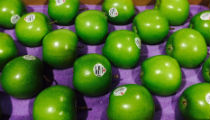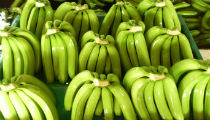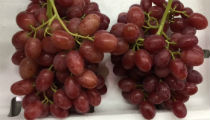Agricultural Commodities
The availability and the continuous preventive use of coccidiostats have contributed to a high level of animal health and welfare in poultry production over the past decennia. Sometimes, there is debate over what coccidiostats actually are: feed additives or antibiotics. For the moment, coccidiostats seem to remain on the European Union’s list of feed additives.
Broiler farmers in the UK reduced their antibiotic use by 82% between 2012 and 2017, and the sector now produces half the meat eaten in the UK using less than 9.7% of the total antibiotics licensed for food-producing animals. Here, Poultry World looks at how it was done.
Churches are increasingly looking at farm animal welfare issues as part of their ongoing investments, according to leading charity fund manager CCLA.
A new report has found antimicrobials used to treat diseases that can be transmitted between animals and humans, such as campylobacteriosis and salmonellosis, are becoming less effective.
Ionophore coccidiostats tend to cause a stir. Some expect that they will soon cease to be feed additives, while others believe they will at least remain available through the vet. Still others expect that it will be completely over for ionophores soon. Each of them have valid points for his or her views, but many of them also have vested interests. Suppliers of coccidiostats, manufacturers of coccidiosis vaccines and vets as well.
Although the functions of butyrate might be familiar to many, is the impact of butyrate the same in the distinct GIT segments on digestive function, microbiota composition and immune responses?
Two years after the first groundbreaking study on product perception and consumer habits of millennials, phytogenic feed additive producer Delacon did a deeper dive into this important target audience. Delacon’s CEO Markus Dedl: “The new study could lead to radical changes in how our industry promotes its end products.”
Retailers and producer groups are leading the way in driving forward positive animal welfare changes, according to the findings of the latest Business Benchmark on Farm Animal Welfare (BBFAW) report.
The past few years have seen egg farmers in Europe battling to keep up with consumer requirements. First battery cages were banned. More recently their replacement, enriched cages, have come under scrutiny after less than a decade in use – could a synthetic egg fit the bill? Some of Europe’s largest poultry businesses seem to think it might.
The European Food Safety Authority (EFSA) has said that setting stricter targets for salmonella in laying hens at farm level “could help reduce cases of this origin by a half”.
Pages
GET IN TOUCH
- 1875 I Street NW, International Square,
Washington, District Of Columbia, 20006 - Phone: +1 (888) 317-3839
- Email: info@mglllc.com
About
Misha Gerhard & Lewis LLC is International Strategic Consulting Firm with an extensive presence in the most rapidly developing regions of the world.







